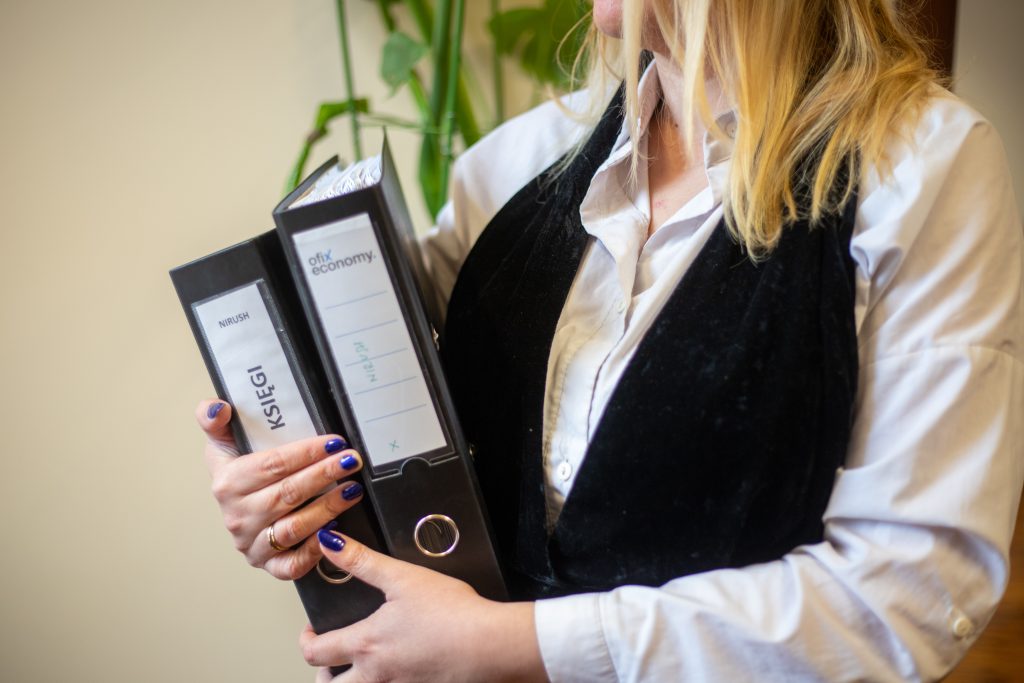The purpose of a tax control in a company is to check whether the audited entity meets its tax obligations. How to prepare for it? How is it different from a customs and fiscal control? Find the answers in the article below.
Table of Contents
- Tax control – definition
- Tax control in a company – how many years back does it cover?
- Tax control in a company – how long does it take?
- Tax control in a company vs. fiscal control
- Tax control in a company and verification procedures
- Tax control in a company – summary
- FAQ – questions and answers on the topic of tax control in a company
Tax control – definition
Tax control is a procedure in which authorities verify whether the audited parties comply with tax law obligations.
Who are the audited parties? According to the Tax Ordinance, first-instance tax authorities conduct tax control on:
- taxable entities,
- taxpayers,
- tax collectors,
- legal successors.
Tax control is not always associated with suspicion of infringements. Its purpose is to tighten the tax system and prevent potential problems.

Tax control in a company – how many years back does it cover?
As per regulations, a tax liability expires after 5 years from the end of the calendar year in which the tax payment deadline expires.
Tax authorities are therefore authorized to conduct controls covering the last 5 years. However, it is rare for auditors to examine documentation from the entire period. Usually, a tax control only covers a specific shorter timeframe.
Tax control in a company – how long does it take?
The duration of tax control is limited and depends on the size of the company. As per the Entrepreneurs’ Law, the total duration of audits on an entrepreneur in one calendar year must not exceed:
- 12 working days for micro-entrepreneurs,
- 18 working days for small entrepreneurs,
- 24 working days for medium-sized entrepreneurs,
- 48 working days for other entrepreneurs.
The control includes all activities at the audited entity’s premises or any other location with access to documents.
Tax control in a company vs. fiscal control
Tax control and fiscal control are two separate procedures. They verify respectively compliance with tax and customs-related regulations. They differ both in scope and subject of control.
As mentioned above, tax controls are conducted by first-instance tax authorities such as:
- the head of a tax office,
- the head of the customs office
- the head of the commune/town/poviat, or voivodeship,
- the head of the tax chamber,
- the head of the customs chamber.
On the other hand, fiscal and customs controls are only carried out by specialized Customs and Tax Offices. They have more powers than the tax offices.
| How do customs and fiscal control differ from tax control? | Among the fundamental differences are: – the lack of notification about the intention to initiate the control, – the ability to examine issues not directly covered by the scope of the control, – concluding the control with a result that does not allow objections and explanations, – the right of the controlled entity to submit corrections within 14 days of the control’s initiation and 14 days after receiving the control result, – automatic initiation of tax proceedings in the absence of correction according to the control’s results. |

Tax control in a company and verification procedures
Tax control in a company is a much more formalised process than verification procedures. It comes down to a formal audit of the correctness of submitted documents or payments. Verification procedures, on the other hand, involve a substantive review of the taxpayer.
As a rule, the audited party should receive formal notification of the intention to conduct a tax audit. There is no such obligation in the case of verification activities.
As mentioned above, the duration of a tax control has been defined in the regulations. In the case of verification activities, there is no provision that would introduce limitations in this regard.
Regulations regarding tax control specify the rights of the authority. Consequently, they also indicate the obligations of the audited party. Such an approach sets the framework for proceedings. Verification activities are less formalized. This is also evidenced by the fact that tax control concludes with a formal document, an inspection protocol. Such a document does not occur during verification procedures.
Tax control in a company – summary
A tax control is a procedure in which authorities verify compliance with regulations by taxpayers, taxable entities, tax collectors, and legal successors. Although it may cover the last 5 years, it usually focuses on a specific period within this timeframe. Its duration is strictly defined by law.
We encourage you to contact our experts, who will be happy to answer your questions about tax control.
FAQ – questions and answers on the topic of tax control in a company
What is tax control?
It is a process in which tax authorities examine and verify the consistency of financial data declared by taxpayers with the real state.
What documents are necessary during tax control in a company?
Authorities may demand access to various documents during tax control in a company. These include e.g. invoices, contracts, bank statements, and accounting records.
How to prepare for a tax control in a company?
Preparation for a tax audit involves meticulous bookkeeping, maintaining financial documentation, and understanding the applicable tax regulations.
Can I seek professional help during tax control in a company?
Yes, hiring an experienced tax advisor can significantly facilitate the process. Experts in that field provide professional support while dealing with tax authorities.
What to do if irregularities are detected during tax control in a company?
In case irregularities are detected during tax control, prompt action is important. It is essential to analyse the allegations from tax authorities carefully. You need to take appropriate steps to clarify the situation as soon as possible.
Are there ways to minimize the risk of tax control in a company?
Yes, there are various strategies that can help minimize the risk of tax control. Meticulous bookkeeping, regular analysis of financial situations, and compliance with applicable tax regulations are crucial.
Can any company be subjected to a tax control?
Yes, any company can be subjected to tax control. Tax authorities have the right to verify the consistency of tax data with the real state of the company.
How long does a tax control in a company take?
The duration of a tax control can vary depending on the scale and complexity of the matter. It could take several days, weeks, or even months.
Can I appeal against the decision of the tax authority after a control?
Yes. There is the possibility to appeal to the appropriate administrative or judicial authorities.
What are the consequences of irregularities detected during tax control in a company?
The consequences of irregularities detected during tax control can vary. They may include financial penalties, additional fees, and the necessity to correct errors in tax declarations.

